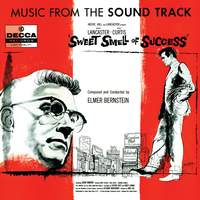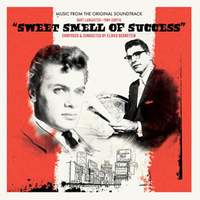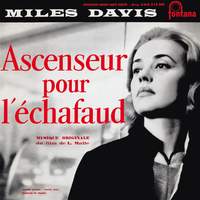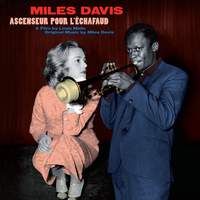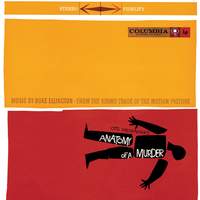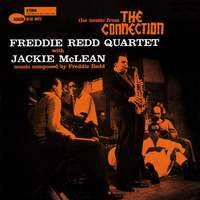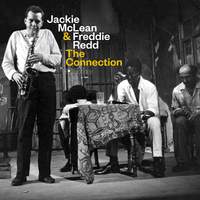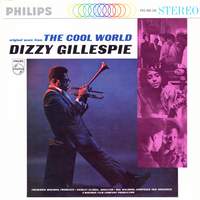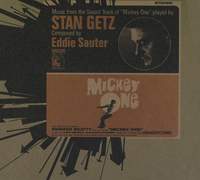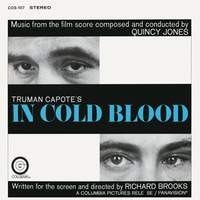Jazz Genre Guides,
Jazz Noir

A spotlight follows a shady criminal as they scurry down a dark alley. Plumes of smoke seem to rise up from beneath the streets, symbolising the murky underbelly of society, all the while sirens blare in the distance. In the backdrop of the scene comes a luscious score of wind, brass and rhythm, which darts back and forth in an unstable manner between moments of frenetic angst and uncertain tranquillity. The association of jazz and the big screen during this classic age of Hollywood cinema is seemingly inseparable, to the point where the time-honoured image of a lone detective, their hat tipped to one side as they sip a glass of scotch with the sleazy sound of a saxophone appearing underneath has become an entire cliché of its own.

It was during this era in light of the encroaching New Wave of filmmakers, however, that composers came into their own as they began to think outside the box, crafting scores that dug deeper into themes which often revealed the psychology of the characters. As the noir genre transformed into neo-noir and then New Hollywood, these non-diegetic compositions often became stars in their own way, hiding in plain sight as they served to represent the dark atmosphere of the movies in which they featured – no longer simply mimicking what was occurring onscreen.
We take a look at several iconic film scores that are famous not only for establishing musical and cinematic conventions, but also how they would quickly go on to break them. With music this good, it should be a crime!
A textbook example of the blend of visual and sonic aesthetics that dominated fifties cinema, this iconic film is just one of the many that utilises the device of location, with a portion of the action taking place in the classic (albeit slightly stereotypical) setting of a jazz club. Each score was released separately at the time – an industry first – but are combined here on the same album for the first time in half a century. The musical themes of the Hamilton quintet find themselves embedded in the dissonance of Bernstein’s overarching score, with the two intertwining to become – as Burt Lancaster’s character acerbically delivers – “a cookie full of arsenic.”
Available Formats: MP3, FLAC
Of all the soundtracks to feature in this article, this one is perhaps the most recognisable to exist outside of the original work for which it was written. Recorded by Davis as he viewed scenes from the film, this effortlessly cool album prefaced Kind of Blue by just one year. With its titular nod to the extravagant Symphonie Fantastique by Hector Berlioz, another lavish beacon of French culture, the score is quietly devastating as the trumpeter tackles an array of modal improvisation with signature style.
Available Formats: MP3, FLAC, Hi-Res FLAC
180g Orange Vinyl + Bonus Track
Available Format: Vinyl Record
A bold and brassy big band score underpins this career highlight from Otto Preminger, an Austrian-born director who altogether revolutionised the noir genre in Hollywood. With a score as jazzy as graphic designer Saul Bass’ emblematic artwork, who better was there to soundtrack this controversial courtroom drama than the musical figurehead, Duke Ellington. Several of the bandmembers appear in the film, with even a cameo from the great Duke himself – tinkling the ivories alongside Jimmy Stewart!
Available Formats: MP3, FLAC
This taboo-busting piece of work began life as a theatrical production and was notable for the employment of real-life musicians among its cast. Having convinced playwright Jack Gelber to feature his own compositions as opposed to generic jazz improv, pianist Freddie Redd jumped at the chance to make his mark and subsequently recorded two different versions of his own score, containing a different lineup in either recording – it is the first, which features the ensemble of Redd’s original castmates, that we highlight here. The Connection was later adapted into the debut feature of experimental filmmaker Shirley Clarke, again featuring the musicians heard on the stage recording.
Available Formats: MP3, FLAC
Limited Edition in 3-Panel Digipack Showcasing Artwork by Iconic Photographer William Claxton
Available Format: CD
The second of Clarke’s full-length features, this film tackled more prescient social themes surrounding gang warfare and urban life within the African-American community. Displaying an impressive score by Mal Waldron and cunningly brought to life by an astonishing ensemble headed by Dizzy Gillespie, this soundtrack once again highlights the director’s lifelong obsession with jazz.
Available Formats: MP3, FLAC
Getz and composer Eddie Sauter had previously collaborated on the third stream record Focus, which the tenor player originally commissioned in 1961. The shimmering but challenging LP suggested what was still to come, as the pair would go on to reunite for this daringly unpredictable film score. Getz’s horn rides atop the composer’s kaleidoscopic arrangements, which venture everywhere from bombastic bossa nova to more lusciously sinister movements of orchestral magic.
Available Formats: MP3, FLAC
Far removed from the charming fragrance of ‘Soul Bossa Nova’ which he has come to be known for, Q spent the sixties as one of the decade's most prolific film composers. Released the same year as In The Heat of the Night (1967), a neo-noir mystery boasting a similarly evocative score from Jones, this screen adaptation of Truman Capote’s true-crime novel is menacing in its musical experimentation, with the hip and swinging bass lines of Carol Kaye serving as an unnerving motif throughout the picture.
Available Formats: MP3, FLAC, Hi-Res FLAC, Hi-Res+ FLAC


